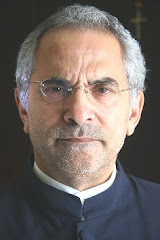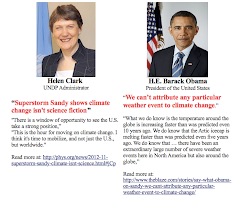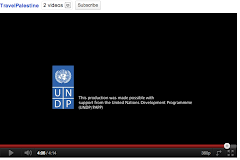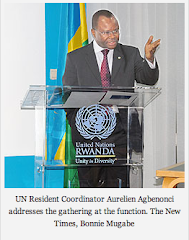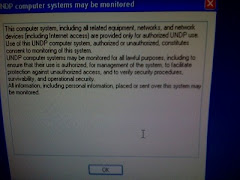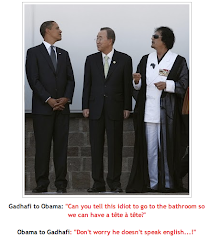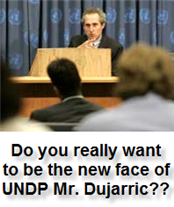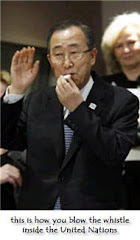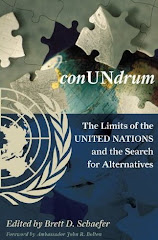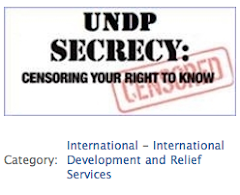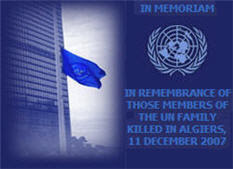The United Nations, which spent more than $732 million on peacekeeping efforts in earthquake-battered Haiti during its last budgetary year, wants another $864.1 million from donors to cover the cost of the peacekeeping stabilization force on the island through the end of June, 2011.
The U.S. portion of that tab would be roughly 27 percent of the total -- about $234.8 million.
One of the stated missions of the stabilization project appears to be making sure that the U.N. takes an active role in ensuring that any aid will not cause a new Haitian economy to have large disparities of wealth among the population.
Just how stable Haiti will become as a result is unclear. Currently, the island is simmering with unrest over a cholera epidemic that has left more than 1,400 dead, and which many Haitians accuse U.N. peacekeepers from Nepal of causing (the U.N. denies it). Explosive protests have erupted in more than a dozen cities and towns as a result.
Additional protests are popping up over the handling of U.N. –supervised elections that took place over the past weekend, with 12 of 18 presidential candidates originally complaining of massive fraud. Since then, two of the main objectors have recanted; preliminary official results will be declared on December 7, with a further run-off election likely.
Meantime, about 1.3 million Haitians remain homeless, and the harsh work of reconstruction is barely underway. As the U.N. itself admits in the budget proposal for the United Nations Stabilization Mission in Haiti, known by the French acronym MINUSTAH, “the challenges presented by the medium term reconstruction and normalization programs are immense.”
And how MINUSTAH handles them may become a significant issue, since its budget declares that one challenge is to coordinate aid “to ensure that it does not exacerbate the unequal distribution of wealth and opportunities that have long fueled instability in the country.”
Nor will the challenges go away soon. In the next year, officials expect that they will be able to remove less than half the homeless to more permanent quarters, and project that they will be able to clear up only about a third of the debris left by the devastating temblor.
Only now, however — 11 months after the disastrous quake — is the mammoth U.N. peacekeeping effort, which involves about 15,800 personnel, including 13,300 military and police, ramping up to full strength, with anticipated expenses to match. The latest peacekeeping tab is more than 18 percent higher than the post-earthquake peacekeeping budget that the U.N. passed last April, for the year that ended this past June 31, and about 50 per cent higher than the U.N. peacekeeping effort cost pre-quake (the U.N. has been in Haiti since 2004).
As with almost all U.N. budgets, the latest $864.1 million number is preliminary ($865.3 million was initially proposed), and a General Assembly watchdog committee that oversees U.N. finances has suggested slicing $10 million from the tab. The U.N. peacekeepers say they will be back with another set of revised figures next February.
Most of the hefty increase in costs since the last peacekeeping budget is the result of the arrival of the entire peacekeeping force, authorized to climb by more than a third in numbers in the wake of the January disaster.
But the tally also includes nearly 400 new and often very highly paid “temporary” civilian positions in the U.N. peacekeeping bureaucracy, a “surge” that is supposed to begin to subside as the Haitian government “need for direct support diminishes and reconstruction efforts wind up,” the peacekeeping budget proposal states.
As a result, the bill for “general temporary assistance” in the Haiti peacekeeping budget is suddenly spiking from about $4.7 million in 2009-2010 to more than $31.6 million in the latest estimate, a hike of $26.9 million.
The budget also notes, however, that the cost of regular, non-temporary U.N. civilian staff has dipped as a result of the “temporary” surge, by about $17.6 million, to $83.8 million. But in almost every case noted in the 110-page budget document, wherever regular staff have been replaced by “temporary” U.N. civilian officials, the newcomers are higher ranked, and consequently earn weightier salaries.
The overall result is a considerably more top-heavy civilian and military component among the peacekeepers, which the budgeters argue is needed to face an array of formidable challenges, including “maintaining stability,” building “capacity to maintain the operations of state institutions,” and — remarkably for an emergency force — coordinating aid “to ensure that it does not exacerbate the unequal distribution of wealth and opportunities that have long fueled instability in the country.”
In other words, the peacekeepers are operating not only as forces for law and order and recovery, but also as social and political engineers working alongside, and sometimes on behalf of, the decimated government of Haitian president Rene Preval, and his successor, whoever that may be, in a vast and open-ended project of nation-building and social equalization.
As the budget document puts it: “MINUSTAH is a critical actor in the consolidation of social peace, stability and the rule of law.”
Having said that, however, the budget document lays out much of that critical role for each segment of the MINUSTAH effort in nebulous terms.
CLICK HERE FOR THE FULL BUDGET PROPOSAL
For its role in aiding “democratic development and consolidation of State authority,” for example, the MINUSTAH budget declares its “expected accomplishment” to be “all-inclusive political dialogue and national reconciliation. As one indicator that it is successful, it suggests that Haiti would have “less than 65 civil unrest incidents triggered by political issues in 2010-11, compared to 78 in 2009-10 and 229 in 2008-09.”
By that standard, the mission might already be dangerously close to being a flop, as a result of the cholera demonstrations and election protests of the past few weeks.
The means the peacekeepers intend to use to meet their objectives are equally foggy. They include “four meetings per month with the President and the Prime Minister to assess progress on the government’s dialogue with political parties and civil groups”; “establishment and leadership of a mechanism to coordinate international electoral assistance”; and “public information campaigns in support of political dialogue, national reconciliation and the promotion and understanding of the mandate of MINUSTAH.”
Public information tools are supposed to include co-production of a soap-opera to be broadcast in refugee camps and elsewhere “to deliver key messages,” as well as “production and dissemination of a wide range of promotional materials, media relations and strong media engagement,” marking, among other things, “United Nations Days.” (In December, there are 11 of these celebrations, including International Volunteer Day for Economic and Social Development, Human Rights Day, and International Mountain Day.)
For the “expected accomplishment” of a “secure and stable environment in Haiti,” the indicators of achievement include an increase of more than 13,000 in joint U.N.-Haitian police patrols in refugee camps over the previous year, and an “increase in the number of gang leaders arrested by police to 26 in 2010-11,” vs. 10 in 2009-10.
Daily patrols and mentoring are intended to increase the abilities of Haitian police, but there are also 20 budgeted seminars and extensive media buys for “vulnerable groups in violence-affected areas, to promote the culture of peace and raise awareness of sexual and gender-based violence.”
On a more concrete anti-crime front, the peacekeepers intend to rebuild all four Haitian prisons devastated in the quake — whose occupants largely disappeared into the general population — and help Haiti’s parliament adopt new penal and criminal procedure codes.
The U.N.’s proliferating organization chart for Haiti also includes a bulking up of supervisors for transport, logistics, communications and procurement — not to mention social services, including improved medical care and anti-stress counseling, for the peacekeepers themselves. Large numbers of the peacekeepers also suffered through the horrors of the quake — 96 peacekeepers were among the dead — and, as the budget states, they “continue to suffer and deal with the traumatic effects of their experience.”
CLICK HERE FOR THE MINUSTAH ORGANIZATION CHART
Not to mention the hard work of coordinating the humanitarian and recovery efforts themselves, including the creation of “quick reaction” military and engineering forces to help the government clear debris, drill wells, and clear roads. The U.N. will also administer a vast array of contracts and contractors who will be hired using some of the $5 billion in relief aid that has already been pledged to Haiti. But much aid has been slow to arrive. According to the U.N.’s Office for the Coordination of Humanitarian Affairs (OCHA), only $34 million of some $906 million requested this year for Haiti in an emergency appeal has been delivered.
None of the additional U.N. peacekeeping help comes cheap. The salary ranges of the new, often “temporary” U.N. workers being layered into the “large and complex” mission that MINUTAH has become are not laid out in the budget document. But salaries for lower level U.N. professionals (Grade P-2) range from $61,919 annually to $81,568, depending on years of experience, while much higher ranked Directors (Grade D-2) make between $149,903 and $166,475.
Those numbers, however, greatly understate the benefits and pay of U.N. professionals. For starters, all their salaries are tax-free. They are additionally augmented with cost of living allowances (around 45 percent (CK) in the case of Haiti), hazard pay (around $17,000 for Grade D-2 in Haiti), transfer and housing allowances and other perks that add greatly to the “temporary” bill.
CLICK HERE FOR A U.N. SALARY AND BENEFITS GUIDE
On the other hand, quite a few of the new hires are not located in Haiti at all, but in the neighboring Dominican Republic, to “reduce the exposure of United Nations personnel and property to potential disasters, such as earthquakes and hurricanes, as well as criminality and riots,” the budget document declares.
Among other things, the peacekeepers have located the vast bulk of their air supply efforts at Santo Domingo’s international airport, rather than Haiti’s international airfield in the capital of Port au Prince — where about 200 U.N. personnel are also located in a Santo Domingo Liaison and Support Center.
However safe they may be as a result, the U.N. peacekeepers are thereby undoubtedly providing a considerable economic boom to the Dominican Republic rather than Haiti — even though the U.N. budgeters argue that along with safety concerns, the civilian presence is also cheaper as a result, as the Santo Domingo staff do not qualify for the hefty U.N. hazard pay allowances that go with the Haiti assignment.
With or without hazard pay, the budget document declares that the expansion of MINUSTAH itself is one of the main reasons behind the “exponential” increase in the “complexity of the operating environment” in which its own services must be delivered. That workload, the budget declares, “has become overwhelming.”
One result: “a comprehensive review of staffing requirements is currently under way.”
In other words, this more expensive MINUSTAH budget for Haiti’s “critical actor” could well be followed by an even more expensive one.
George Russell is executive editor of Fox News.










